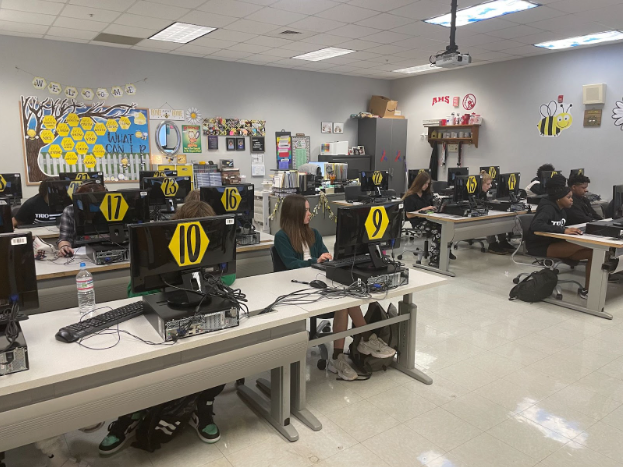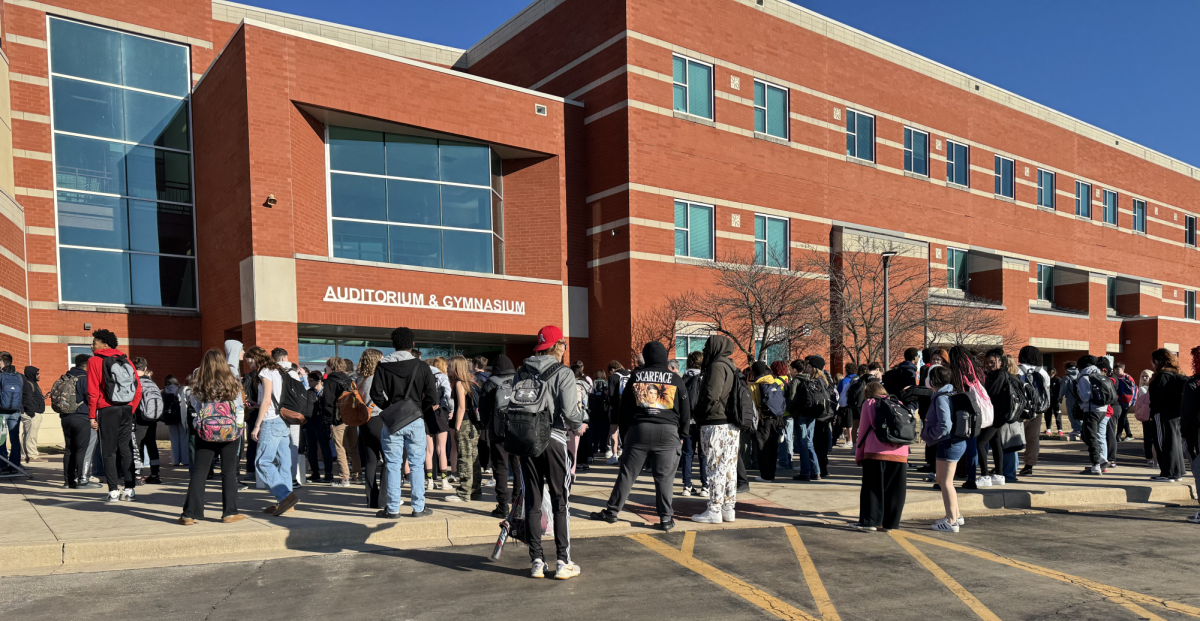At Alton High, the green movement is gaining momentum as students and faculty unite to foster a sustainable environment.
The school’s involvement in the Madison Green School program began in 2002 and has recently revived efforts to reduce waste and encourage recycling. This revival is driven by the JROTC program, which has taken the lead since 2022. ROTC teacher and leader, Katie Rosenbeck, a dedicated member of the initiative, emphasized the program’s importance in managing waste.
“When I started in 2002, a previous science teacher had initiated the Madison Green School program, and now JROTC has taken over the reins,” Rosenbeck said. “We create a lot of waste every day, and we should recycle where we can to reduce our carbon footprint. That’s what we are working on.”
Currently, the JROTC recycling program focuses on sorting cans and bottles.
“Unfortunately, we can’t take paper or cardboard at this time,” Rosenbeck said. “But we are working to expand that to accept paper later in the year, if not by next school year.”
Rosenbeck said that a critical goal is to reinstate a recycling dumpster on campus, vital for effective recycling efforts.
“Our biggest thing right now is getting a recycling dumpster back on school property. We don’t have that right now, and that is something we would like to see come back,” Rosenbeck said.
The school is exploring grant opportunities, including one offered by Madison County Schools for up to $2,000 to bolster their green initiatives.
“A grant could really help launch more projects and expand our capabilities,” Rosenbeck said.
In addition to recycling, Rosenbeck advocates for reducing paper usage in classrooms.
“If the school encourages staff to cut back on paper, and we do most of our homework electronically, it would create a huge impact,” Rosenbeck said. “I’m very much trying to incorporate more technology into my classroom. I hope to see more teachers go that route where they can.”
This reflects a growing trend towards sustainability in education, urging students to utilize digital platforms.
Meanwhile, Daniel Pettus, who teaches field ecology, integrates community service with environmental activism. He outlined various projects that allow students to engage actively with their surroundings.
“We’re planting trees on Oct. 18 at Glazebrook [park],” Pettus said. “I have some kids volunteering for a river cleanup on Sep. 28. Our community often reaches out to us for environmental initiatives, such as pulling honeysuckle or planting trees, and we fulfill those requests.”
As students and staff work together to support the environment, their initiatives encourage a culture of sustainability and responsibility. With upcoming projects and a continued focus on recycling, the school is on the path to becoming a greener space. This not only promotes awareness but also encourages action within the wider community.






